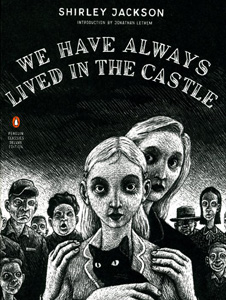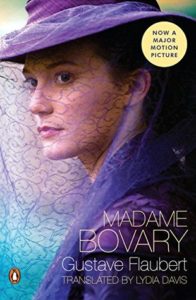The great book shortage of 2021, explained
Those exhortations you’ve heard about ordering holiday gifts early include books. My daughter reminded me just a couple of days ago to get my book requests to her soon.
In defence of memoirs – a way to grip our story-shaped lives
After studying life stories and their nonfiction manifestations, memoirs, I began finding new meaning in novels that simulate their nonfiction counterparts. Here Helena de Bresis, associate professor of philosophy at Wellesley College in Massachusetts and author of this year’s Artful Truths: The Philosophy of Memoir, examines why people write memoirs:
maybe the deepest reason for writing a memoir . . . is the desire to find meaning in one’s past experience. Whatever else they’re up to, memoirists are in the business of locating some form or order in their personal history: setting it down as an intelligible shape, not a hot mess. Finding this form is both a necessary part of memoir and one of its key rewards.
She goes on to say, “Old-fashioned storytelling has real virtues when making sense of the world,” and here is where I find the natural connection between life stories and fiction.
10 Frightening Facts About Shirley Jackson’s We Have Always Lived in the Castle
Halloween approaches, and here’s an example of examination of literature appropriate for the season. As much as I love this spooky story, I did not know that it is based on an actual case of poisoning.
Lauren Groff Makes a Radical Departure
I still haven’t read Lauren Groff’s acclaimed novel Fates and Furies (so many books, so little time . . .). Kristen Evans writes about Groff here on the occasion of the recent publication of Groff’s fourth novel, Matrix, which “delves deep into the mist and mysticism of medieval England and France. It follows the astonishing life of a poet who, under the pen name Marie de France, wrote the first verses ever attributed to a woman in French literary history.”
Beyond the “Whodunnit.” Paula Hawkins on the Importance of Gray Areas in Crime Novels
This transcript is from a recent podcast about the publication of Paula Hawkins’ recently published novel A Slow Fire Burning.
then some things are, by their very nature, they seem to us to be unforgivable. And that’s a theme that ran throughout the book—the decision to pursue revenge or pursue forgiveness. Obviously forgiveness is the way we feel we ought to go. But is it the most cathartic way? Will that make you feel better? Will it help you to heal?
There’s also a question I think that I was thinking about a lot is, “What would appropriate justice look like for these people?”
Unreliable Unreliable Narrators
I was immediately drawn to this article by its title. The unreliable narrator is a common trope in fiction, especially the mysteries and thrillers I gravitate toward, but, of course, some unreliable narrators are more unreliable than others.
Adam O’Fallon Price begins the article this way:
All first-person narrators are unreliable. This is less a structural feature of storytelling and more a structural feature of the human condition. We lie to ourselves, we lie to others, and even if we mean to tell our story with complete honesty, we can never fully understand it. As the saying goes, approximately: The proof that we’re unreliable narrators is the fact that everyone is the star of their own story.
Some books, Price writes, let us know about the narrator’s unreliability in order to allow us to incorporate that knowledge into our evaluation of the character. The example Price cites is Humbert Humbert’s use of unreliable narration to aggrandize his desires that we recognize as pedophilia.
However, Price’s focus here is “a rare category of book that seems to misunderstand its own narrator. Either the narrator is unreliable and the book itself doesn’t understand it, or else the book understands the fact of its narrator’s unreliability, but misjudges its nature.” Such “unreliably unreliable novels can present both the greatest challenge and the most fun as an active reading experience.”
Why My Favorite Characters to Write Are Often Unsympathetic and Unforgivable
I’m going to let Melnyczuk speak for himself, since he explains this concept so well:
Relatability was never a criterion [for evaluating fictional characters]: sometimes I empathized, but as often I was appalled. At the same time, because nothing human (more or less), is alien to me, I’ve felt my understanding enlarged by fiction whose charge isn’t to soothe readers by providing exemplary characters as “models for emulation” but rather to quicken them to a heightened awareness of the imagination’s, and by extension life’s, vast range, and so bring us closer to reality. Fiction should use its singular devices to disillusion us, lest we be deceived by placebos and lies. The best fiction tells lies that lie deeper than truth. Indeed, disillusionment is one hugely positive side effect that arises from reading the very best fiction.
In Defense of Mean Girls in YA Literature
Last week’s links included Lena Wilson’s account of how she was influenced by the Clique books.
In this article journalist and YA author Hayley Krischer defends mean girls in literature, whose prototype is Emma Bovary from Flaubert’s novel Madame Bovary:
[Mean girls] take control of their own lives despite the judgment of others. “Mean girls” (sans a few exceptions) is really just code for rebellion, it’s code for girls who step outside the box. These are angry girls. Frustrated girls. They’re flawed girls. They’re misunderstood girls. They’re all girls who aren’t behaving in the way society expects them to.
Lee Child on the Invention of Fiction
Child argues that language arose to allow “a coordinated group of a hundred humans [to become] the most powerful animal the earth had ever seen.”
“Then something very strange happened. We started talking about things that hadn’t happened to people that didn’t exist. We invented fiction.” Child speculates that humans developed stories “to expand our experience, which was the evolutionary purpose of story, to take us places we wouldn’t normally go, to shine a beam into corners normally left dark.”
This piece is an excerpt from Child’s introduction to The Best Mystery Stories of the Year, 2021. Edited by Otto Penzler and Lee Child. Published by Mysterious Press.
© 2021 by Mary Daniels Brown



